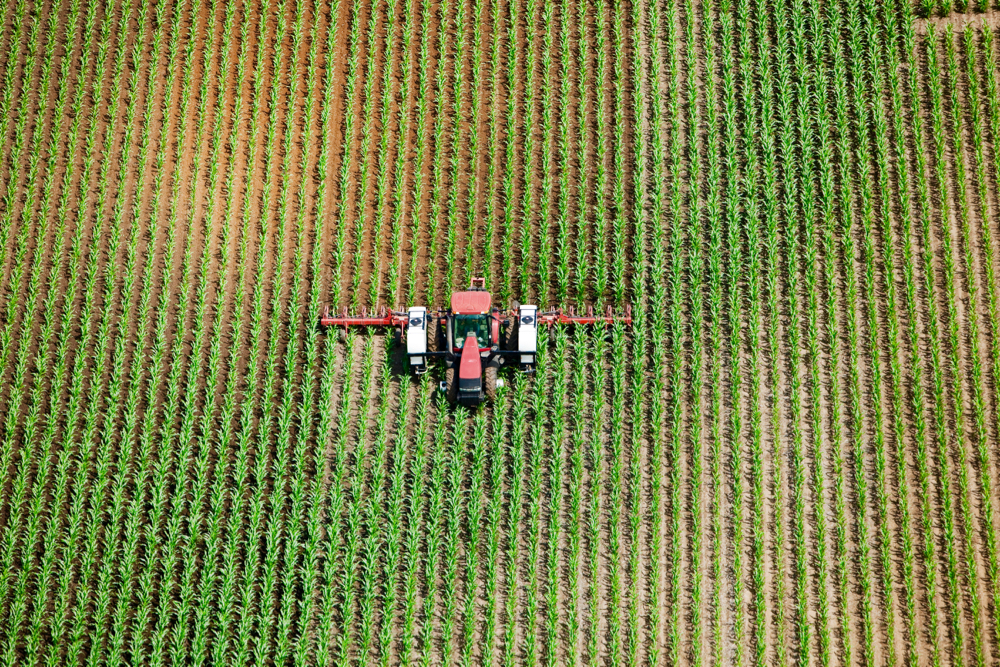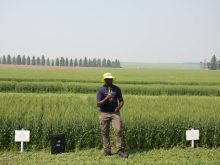Farmers remain concerned about federal emissions reduction targets and whether they’ll remain voluntary.
Lots of producers are worried about Ottawa’s goal of reducing fertilizer-related greenhouse gas emissions by 30 per cent by 2030, and that’s reflected in the “What We Heard” report recently issued by Agriculture and Agri-Food Canada, said Shannon Sereda, senior manager of government relations and policy with Alberta Wheat.
She noted that 40 per cent of the more than 2,000 submissions AgCanada received during the eight-month consultation period last year came from Alberta.
Read Also

Taking the farmers’ market online
Two Albertans, who have a cow-calf operation near McRae, had the idea to create Arvo, an online farmers’ market, after being unable to find beef from within their own community.
“Our farmers are very concerned about the fertilizer emission reduction target that was originally announced and I think that’s very much reflected in the document,” said Sereda.
However, the report appeared to reflect a willingness to work with farmers on issues around fertilizer, she said.
“I think we’re encouraged that the tone tends to acknowledge the importance of fertilizer to economic growth and meeting our export goals as a nation.”
Ian Chitwood, vice-chair of Alberta Canola, said he is encouraged that a non-mandatory approach to emissions targets appears to be the status quo.
“We have assurance from the federal government that this is their policy position right now. That’s what we were looking for as an organization,” he said.
“All the indicators point to (emissions targets) not being mandatory. Whether they remain that way over the next number of years will certainly be on the mind of producers.”

The federal ag minister vowed that won’t change.
“I would like to be clear; there is no mandatory reduction in fertilizer use on Canadian farms,” Marie-Claude Bibeau wrote in a forward to the report. “Instead, we want to support measures that producers can take voluntarily to reduce their emissions over the long term without curtailing growth in crop yields.”
She also pledged not to impose economic burdens on farmers in the quest to reduce emissions.
“We need to ensure that our efforts to reduce emissions do not undermine their competitiveness or their vital work, especially at a time when food insecurity has reached unprecedented levels worldwide and the fertilizer supply chain is increasingly strained,” Bibeau wrote.
Farmers, producers, industry associations, provinces and territories, scientists and environmental organizations provided comments during the consultation period.
A large number questioned whether a fertilizer emissions reduction target was needed, a sentiment that was often coupled with concerns that a mandatory target might later be imposed.
A significant number of respondents said they preferred an intensity-based reduction in emissions rather than an absolute reduction. They were also concerned about how these targets might impact production.
Farmers were concerned that climate change policies might not consider the economics of emission reductions and how that could affect their bottom line.
Another concern was that applying blanket policies doesn’t properly reflect regional diversity. Respondents indicated that more localized data and increased extension services would help them adopt nitrogen management practices.
However, while there were many concerns with the target, there was also significant buy-in. Many respondents recognized the need to act on climate change and were on board with reducing emissions. But they also wanted recognition for the role that Canadian farmers already play in promoting sustainability and reducing emissions, something many respondents felt pride in.
The desire to see better communication and engagement between the government and the ag sector also emerged.
“There is clearly a diversity of perspectives on many key issues, and we are pleased to see the report identify the importance of further producer engagement in advancing this voluntary approach,” said Keith Currie, president of the Canadian Federation of Agriculture. “We are pleased to see the report factor in producer profitability.”
Fertilizer Canada president and CEO Karen Proud said she was pleased to see support for 4R nutrient stewardship.
“We look forward to continuing to work with the government and producers to improve measurement and accelerate the adoption of 4R best management practices, which reduce emissions and increase productivity,” she said.















